Are you able to spot phishing scams? Scammers constantly bombard unknowing victims with spoofed emails and messages from well-known companies and organizations containing phishing links to lure them into responding with their sensitive information.
In this post, we’ll share the details of 8 popular phishing scams – Apple, Amazon, FedEx, T-Mobile, and DMV. You’ll see how these phishing scams work and learn tips to avoid them. Continue reading to know how you can spot the scams and no longer be an unknowing victim.
Phishing Text
Amazon Raffle Scam
Scammers will send you a message, posing as Amazon and falsely claiming that you have won a raffle campaign. To arrange the delivery of the award, you have to click on a link, which is a phishing link. The link leads to a website where you are asked to provide personal information such as your birthdate or home address.

FedEx Delivery Tracking Scam
Are you expecting packages to be delivered to your house? Scammers will send fake messages from FedEx and ask you to trace the delivery by clicking on the phishing link they provide. After you enter your personal information, like your home address, you will be asked to pay a $1 “delivery fee” and submit your credit card number along with the CVC code.
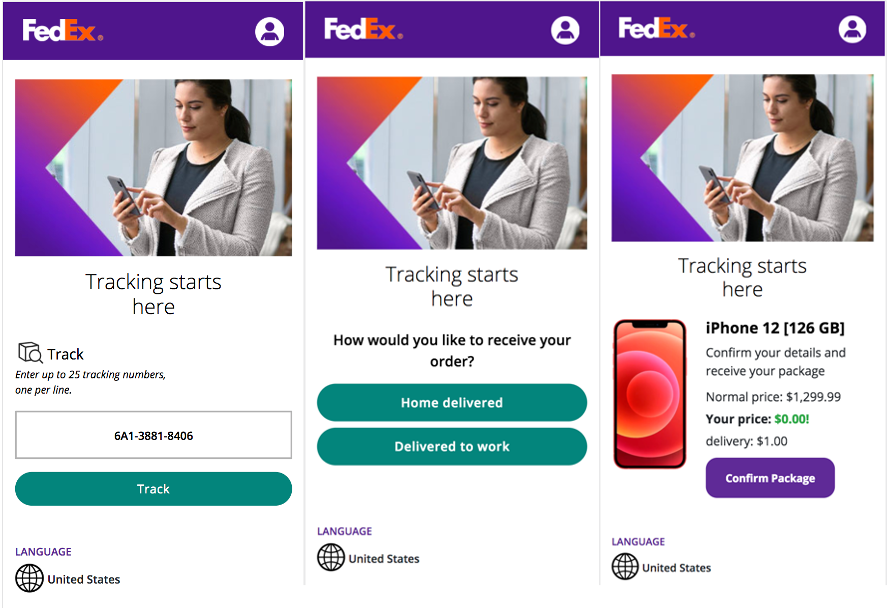

Content of FedEx phishing texts:
Your Fedex-delivery is scheduled for tomorrow at [time]PM. Let our driver know if you are home: [URL]
FedEx Notification: Your order was picked up by the courier this morning, follow your package here [URL]
DMV Survey Scam
Scammers pose as the Department of Motor Vehicles (DMV) and send a message to you, claiming that you can get $240 by clicking on the attached link. The phishing link leads to a page entitled “USA Financial Assistance” that seemingly provides a special offer. You are then asked to enter information such as your address and phone number to get an auto insurance quote. The data will end up in scammers’ hands and will be used for other scams such as identity theft.
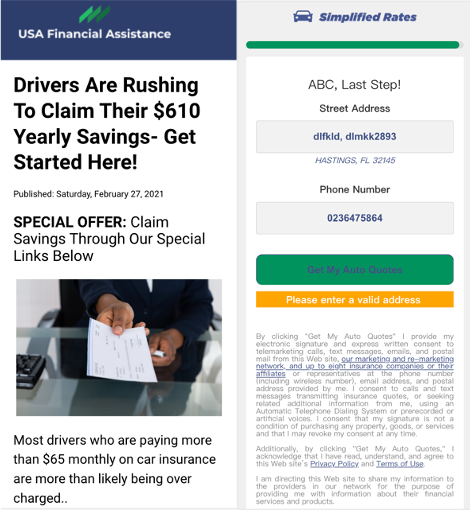
Content of DMV phishing texts:
DMV Sent You A New Notice. Read Now – [URL]
Hey! This is Chris from DMV. You are eligible to receive $240 >> Register here [URL]
T-Mobile Survey Scam
You may receive text messages from a fake T-Mobile account saying that you can do an online survey and get $100 in credits as a reward. It’s a scam! The messages start with the T-Mobile official site’s legitimate web address, but scammers also insert a phishing link to trick you into clicking on it.
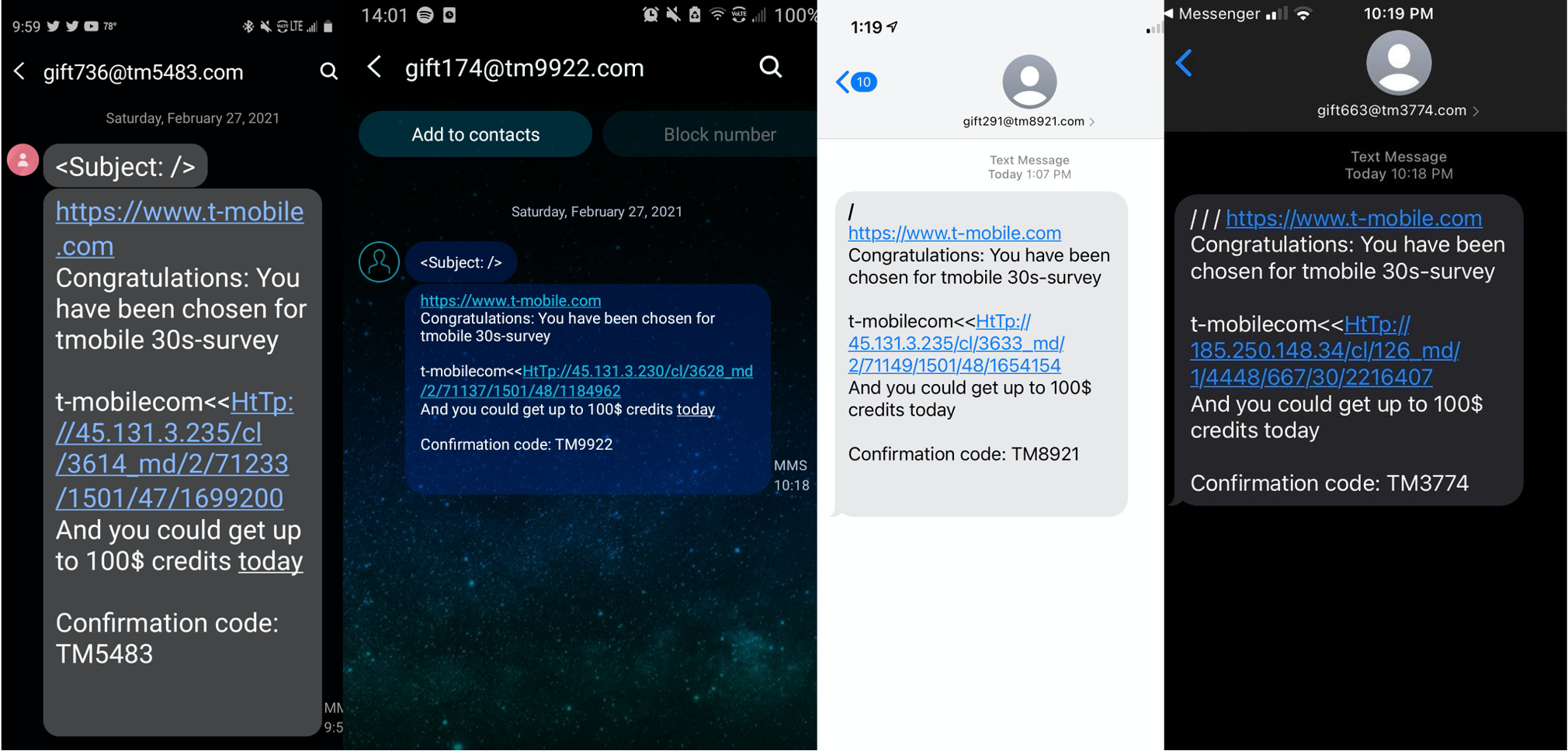
The phishing link leads to a fake T-Mobile online survey page. When you click on the “ACCEPT” button, you are asked to fill in a series of personal information such as your birth date, phone number, and home address. Scammers use the information for other scams, such as identity theft.
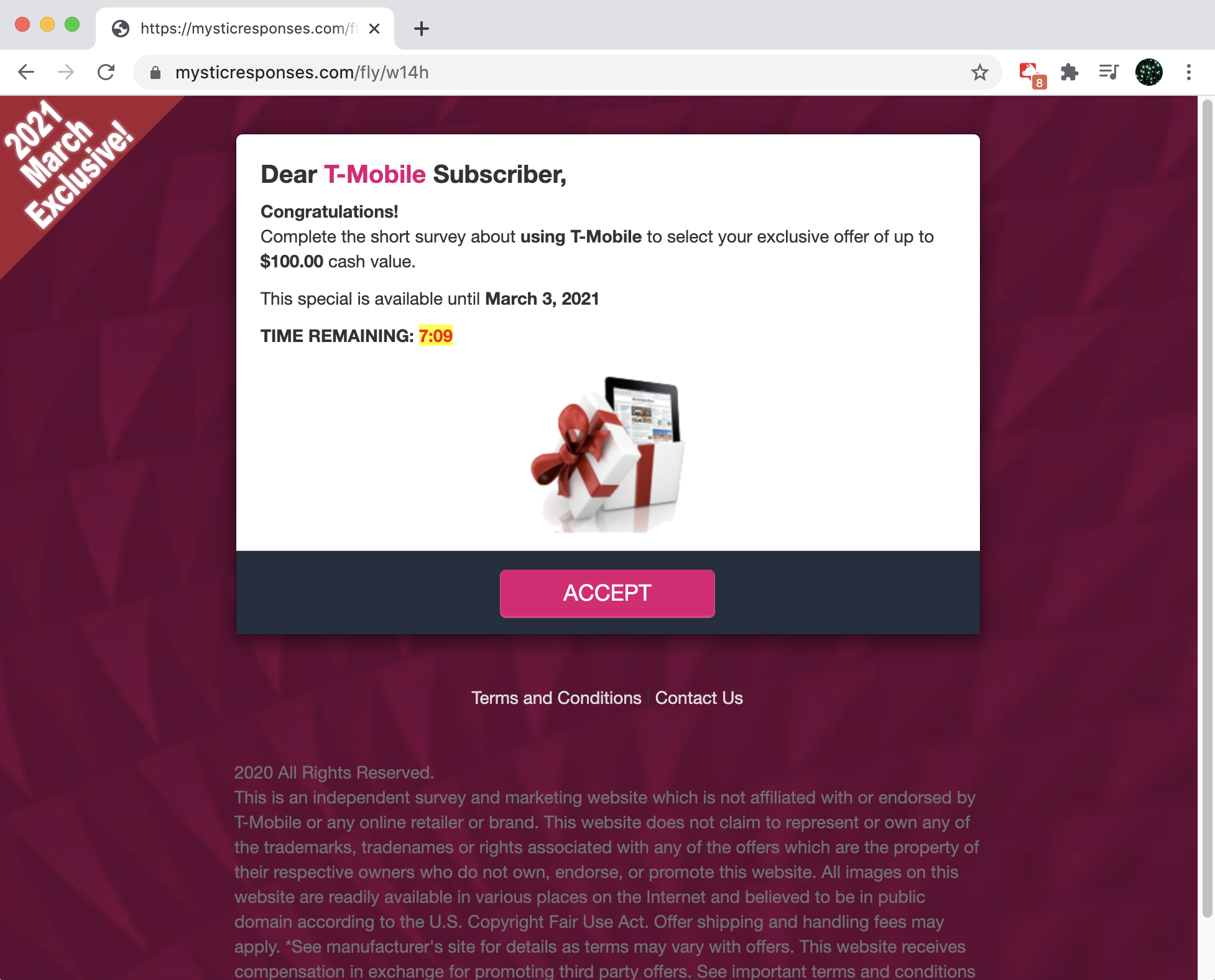
Facebook Phishing Attack
We’ve probably all seen Facebook phishing attacks through Messenger, but now they arrive via text message as well. Scammers pose as Facebook and send messages with phishing links to you – falsely claiming that there are complaints or other issues with your Facebook account.
You are asked to click on the link to review the activity and enter your login credentials. Scammers can take over your account and spam all your friends with the same scammy messages.
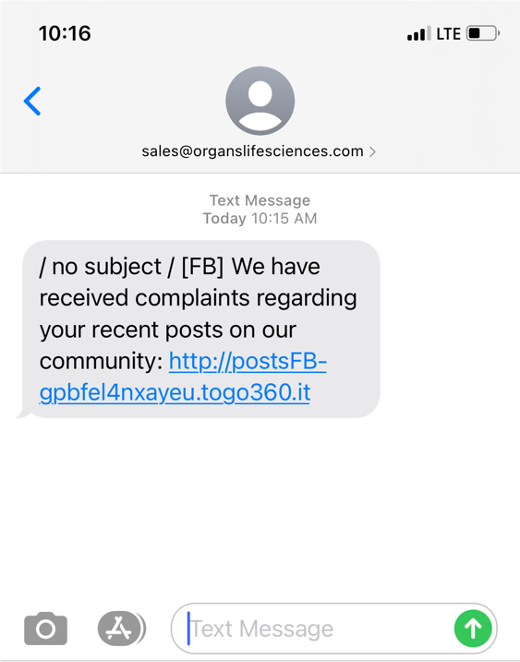
Phishing Email
Just Eat Gift Card Scam
Scammers send a spoofed email from Just Eat and make it seem legitimate, but the link they provide is a phishing link. Once you click on it, it will take you to a web page where you’ll be asked to enter your sensitive information, such as your home address and credit card number. Just Eat has already confirmed that this email is fake. Be careful!

Apple Verification Scam
Apple is one of the most impersonated brands in phishing scams. In the latest phishing attempt, scammers pretend to be from the Apple Support team, reaching out to you through email. They claim that your Apple IDs are “locked for security reasons,” and you have to update information by clicking on a link: https:///appleid.apple.com.
This web address looks like the legitimate Apple ID page, but there’s an extra slash “/.” That is, the link is a hyperlink that leads to a phishing page. Don’t open it!
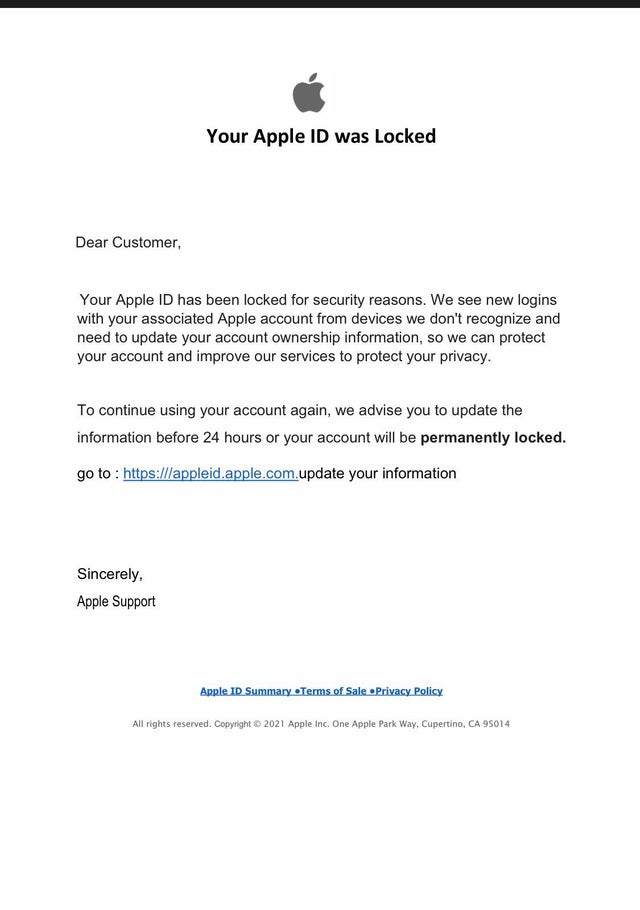
Amazon Verification Scam
Have you ever received emails from Amazon that claim your account has been suspended? Scammers spoof emails with a pdf attachment, pretending to be from Amazon. The pdf file is an image of a fake Amazon email that asks you to click on a button to update your billing information.
Once you click on the “Update Now” button (phishing!), you will be lured into sending your personal information or financial credentials to the scammers. They can use this data for identity theft or other scams afterward!
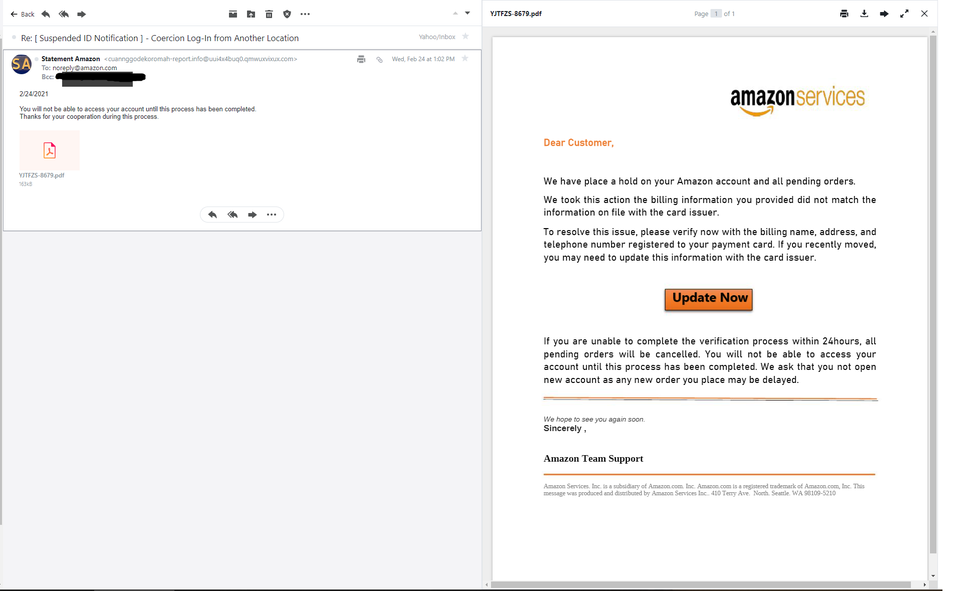
How to protect yourself from phishing scams?
- Double-check the sender’s mobile number/email address.
- Reach out to the official website or customer support directly for help.
- NEVER click links or attachments from unknown sources. Use Trend Micro ScamCheck for immediate scam detection!
Copy-paste a link and send it to ScamCheck on Messenger or WhatsApp to detect scams:
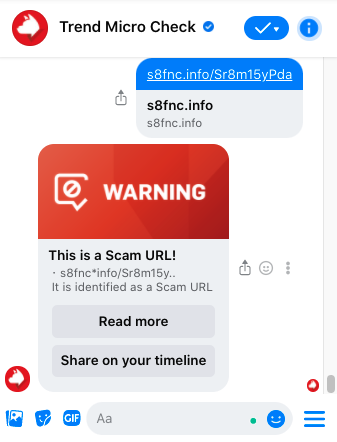
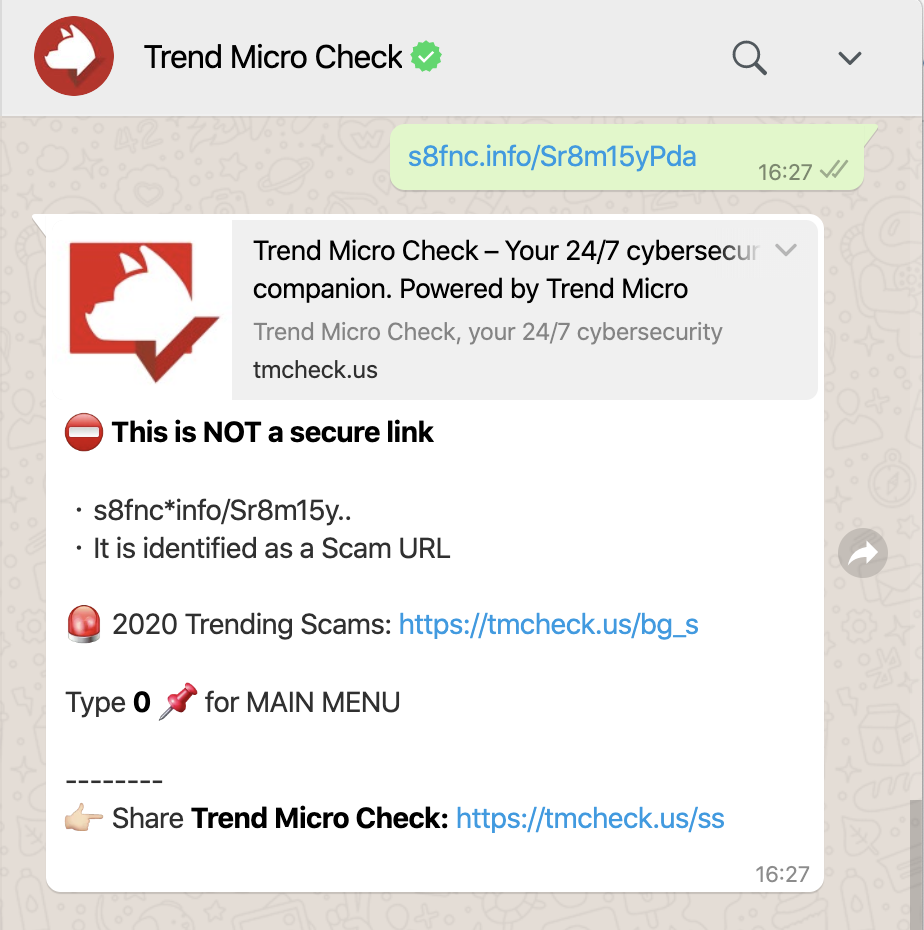
Too inconvenient to copy-paste? You can send screenshots directly to Trend Micro ScamCheck as well!
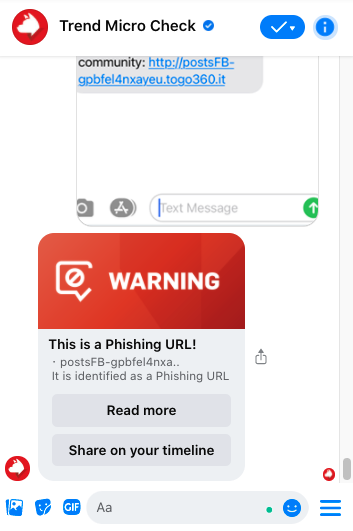
Trend Micro ScamCheck is also available as a Chrome extension. It will block dangerous sites for you automatically:
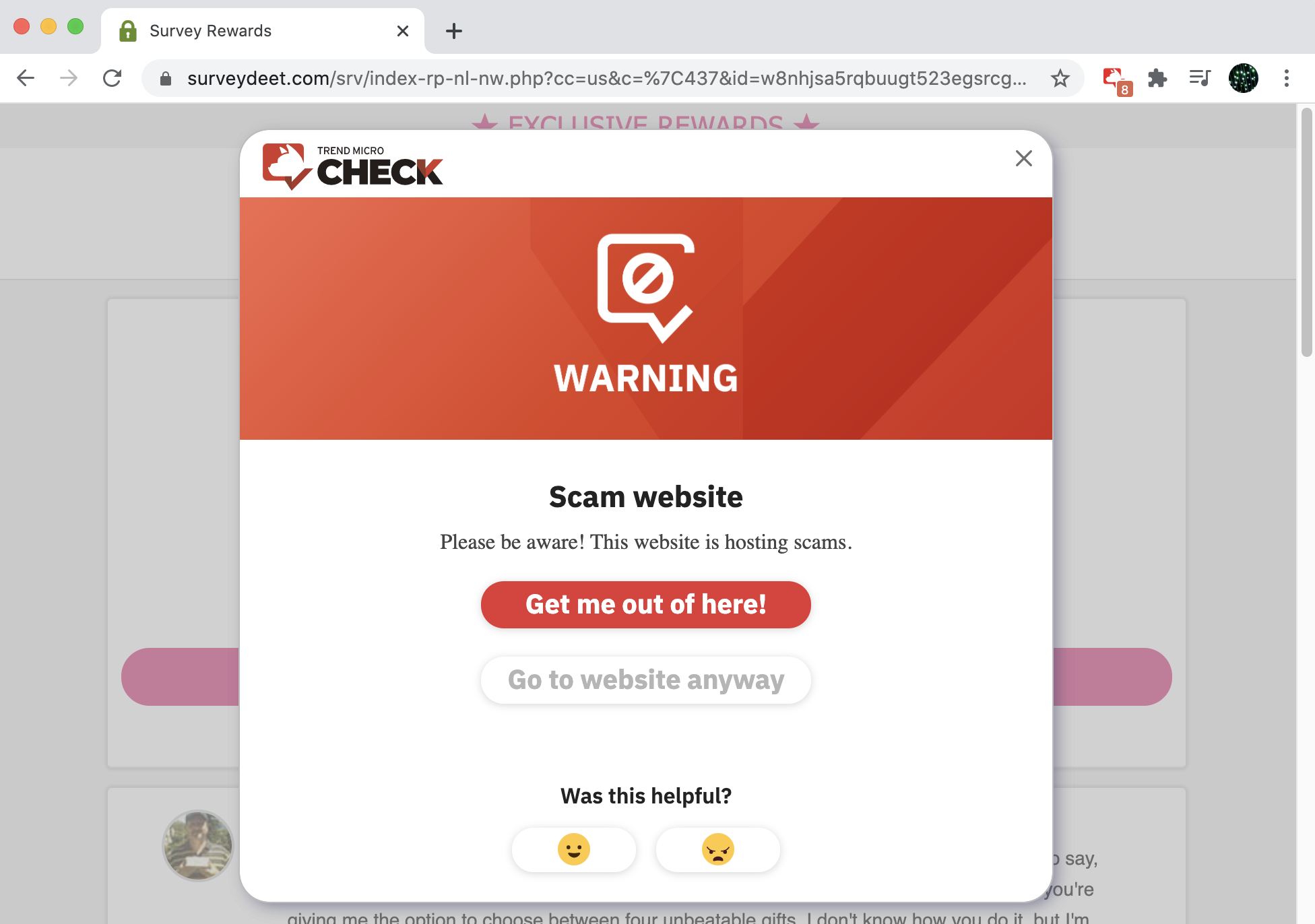
Did you successfully spot the scams? Remember, always CHECK before your next move.
If you think Trend Micro ScamCheck is helpful, please SHARE to protect your family and friends.
Click on the button below to try Trend Micro ScamCheck for free now:
